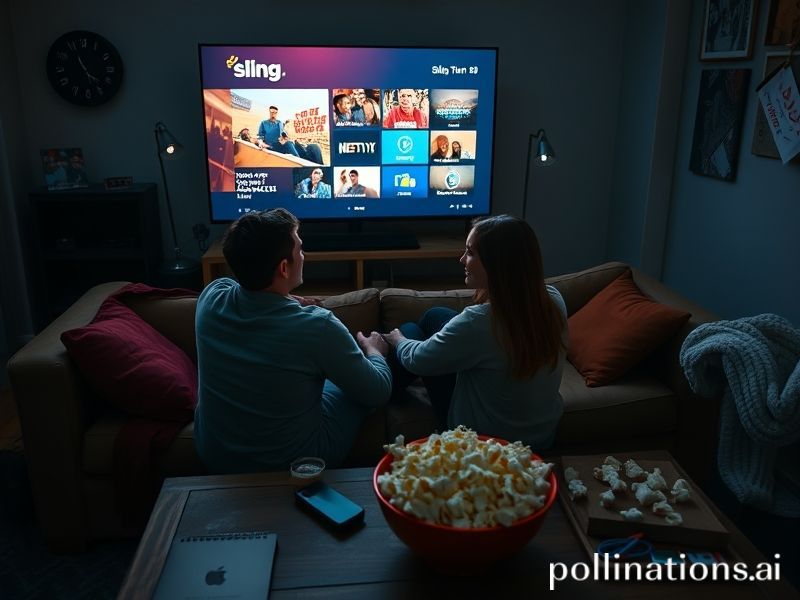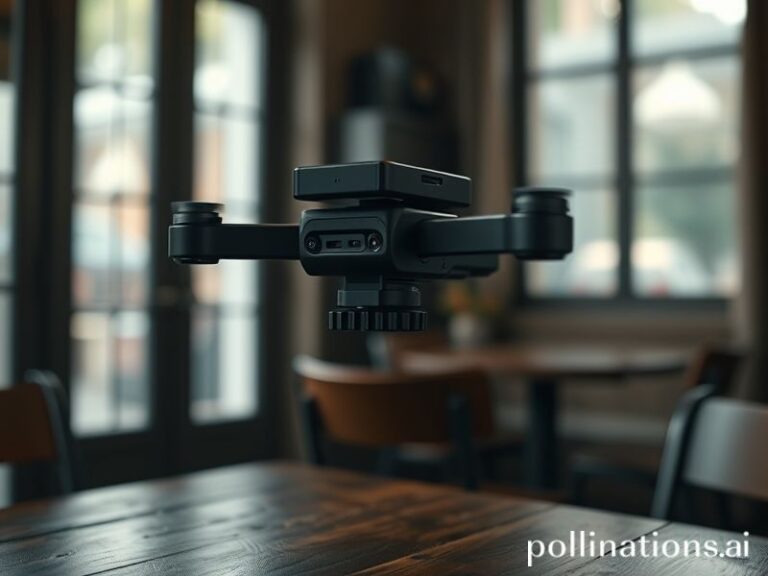Sling TV’s Quiet World Domination: How a $40 American Streamer Became the Planet’s Favorite Guilty Pleasure
When Sling TV launched in 2015, the world was still innocent enough to believe that “cord-cutting” was a liberation movement rather than a rebranding of the same old leash. Nine years later, the Atlanta-based service has quietly become the little Trojan horse that keeps U.S. media inside everyone else’s living room, proving that imperialism now travels on a 5 Mbps stream instead of a gunboat.
From Lagos to Lima, expats, exchange students, and the merely curious have discovered that $40 a month buys them front-row seats to American cable news, NBA tantrums, and 24-hour chili-cheese cooking competitions. The joke, of course, is on both sides: Americans think they’re exporting culture, while the rest of the planet treats it like a wildlife documentary—fascinating, occasionally adorable, and best consumed with subtitles so the children aren’t permanently warped.
Sling’s international footprint is technically zero; it geofences harder than a paranoid border guard. Yet its real market is wherever there is Wi-Fi and a credit card that hasn’t been maxed out on Steam games. VPN merchants in the Balkans swear by it; hostel owners in Bangkok resell logins the way 19th-century sailors traded tobacco; and in Dubai, the phrase “I Sling” is now shorthand for “I have a cousin in Michigan who owes me money.” The U.S. Trade Representative may fret about Chinese apps, but nobody audits the soft-power pipeline that is HGTV’s “House Hunters International.”
The economics are brutally elegant. Sling buys wholesale bundles from Disney, Warner Bros. Discovery, and the other four companies that own everything, then slices them into color-coded tiers like a bored sushi chef. Internationally, this arbitrage looks positively philanthropic: why bribe a cable monopoly in Manila for 120 channels in Tagalog when the same cash nets ESPN, Adult Swim, and whatever conspiracies Fox is incubating this week? The Philippines’ own regulators have noticed—House Bill 1234 (catchy title: “An Act to Stop Filipinos From Watching Rich People Renovate Kitchens”) is currently dying in committee, as lawmakers realize their own kids are the ones streaming.
Europe, ever the self-appointed ethics nanny, sniffed at Sling’s data-slurping privacy policy and declared it incompatible with GDPR. Undeterred, the service simply stopped marketing there, confident that any Berliner who truly needs “Real Housewives of Salt Lake City” will find a way. Meanwhile, the EU’s own streamers hemorrhage subscribers, proving once again that nothing competes with American dysfunction—not even subsidized Scandinavian noir.
The geopolitical kicker arrived last winter when Russian state television ran a breathless segment exposing Sling TV as a CIA psy-op designed to rot the moral fiber of the Rodina. The evidence: a screenshot of a drag-queen cooking show. Within hours, every digital-savvy Muscovite under thirty was googling “how to pay for Sling with crypto.” Soft power, meet reverse psychology.
Back home, Wall Street still treats Sling like the neglected middle child between Netflix’s prom-queen glow and Disney+’s trust-fund swagger. Yet internationally, it is the scrappy scholarship student smuggling cigarettes rolled in the American flag. It has no global offices, no multilingual support, no plausible deniability—just a single, smirking assumption: if the content is loud enough, the world will lean in and listen through whatever linguistic or legal firewall happens to be in the way.
So here we are, orbiting a planet where national broadcasters beg for funding, European ministers draft ever-thicker regulations, and Sling TV continues to beam “90-Day Fiancé” into the midnight bandwidth of humanity’s collective despair. The revolution, it turns out, will not be televised; it will be streamed, paused for buffering, and charged to a Discover card with a Delaware billing address. And should the apocalypse arrive before the next billing cycle, at least we’ll all die knowing which U.S. state has the most haunted pawn shops. Priorities, after all, are what make us human.







